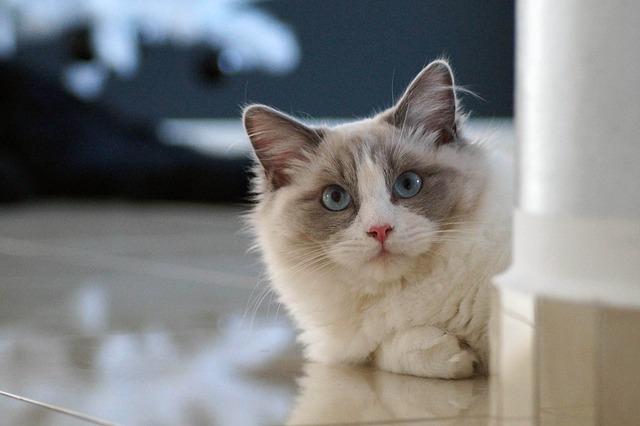The Pros and Cons of an Indoor Cat
•Posted on May 14 2018

 When it comes to deciding whether your cat is going to be an Indoor Cat or an Outdoor Cat there are various factors that you should consider. Choosing to keep your cat indoors depends on living conditions, personal circumstances and natural culture. You need to think about your cat’s welfare and safety for them to lead a happy and healthy life. If you live in a busy city or an apartment it might be tempting to keep your pet indoors as allowing your cat to wander free comes with its own set of dangers. Indoor Cats make great house pets however there are some things you need to keep in mind about this situation. To help you make the choice, we’ve weighed up the pros and cons of owning an Indoor Cat:
When it comes to deciding whether your cat is going to be an Indoor Cat or an Outdoor Cat there are various factors that you should consider. Choosing to keep your cat indoors depends on living conditions, personal circumstances and natural culture. You need to think about your cat’s welfare and safety for them to lead a happy and healthy life. If you live in a busy city or an apartment it might be tempting to keep your pet indoors as allowing your cat to wander free comes with its own set of dangers. Indoor Cats make great house pets however there are some things you need to keep in mind about this situation. To help you make the choice, we’ve weighed up the pros and cons of owning an Indoor Cat:
Indoor Cat: The Pros
Reduced risk
If kept indoors, your cat will be protected from outdoor hazards. This includes the risk posed by traffic, fights with other animals as well as poisonous flowers and insecticides. Left unattended, pedigree cats are also at a greater risk of being stolen.Less likely to contract parasites
Being indoors, your pet won’t encounter other felines as much as an outdoor cat, reducing the risk of contracting parasites or infectious diseases common to cats.No hunting
As predatory animals, cats instinctively hunt. Presuming your home is secure, indoor cats won’t be able to kill and therefore bring home dead rats, mice and other animals.Indoor Cat: The Cons
Boredom
Cats are natural wanderers. If kept inside, they’re prone to becoming frustrated and bored. This may lead to the development of problems derived from restless behaviour. To prevent this, ensure your cat is entertained during the day with toys and other engaging activities.Increased sensitivity to changes in environment
Most cats enjoy a certain level of stability in their environment. However, indoor cats can develop increased sensitivity to change, becoming unsettled and irritable to small differences around the home.Increased stress
When experiencing stressful situations, outdoor cats can slip away through their cat flap to get away from it all. Without access to the outdoors, indoor-only cats require a safe haven within your home to retreat. If your cat has to share indoor space with other cats or animals, this may increase feelings of stress.Exercise
Indoor cats need help to get adequate exercise and to maintain a healthy body condition therefore it is vital that you provide lots of playtime for your cat so that they don’t become obese and unfit.If You Choose to Keep Your Cat Indoors
- Play with them often
- Make sure that there is enough to keep them stimulated such as places to climb, lots of toys and a scratching post – this will prevent depression and behaviour difficulties
- Give them plenty places to look outside – this is very stimulating for your feline
- Don’t overfeed – unlike outdoor cats, indoor cats tend to put on more weight due to the lack of roaming
- Keep all windows and doors locked as cats can easily find escape routes. It would be ideal to microchip your cat as a precaution
- Have enough litter trays and bowls (one per cat)


